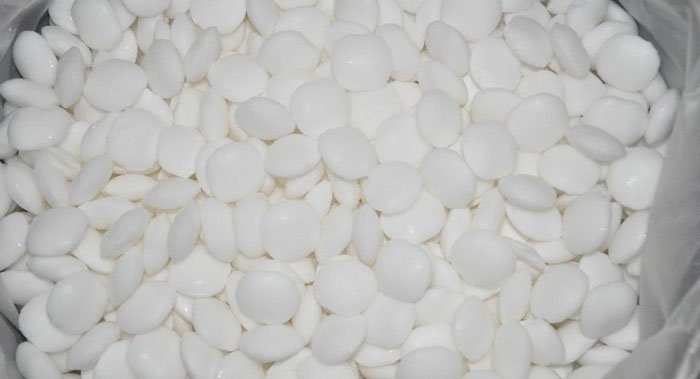The Chemistry of Sodium Cyanide: Properties and Industrial Uses
Sodium cyanide, commonly known by its chemical formula NaCN, is a pivotal compound in various industrial processes due to its unique reactivity and solubility. As a white, crystalline solid, it plays a critical role in sectors like mining, metallurgy, and chemical manufacturing. In this blog post, we’ll explore the Sodium Cyanide chemical properties, including its solubility and pH levels, and delve into its wide-ranging industrial applications. Whether you’re a chemist, industry professional, or simply curious about industrial chemicals, understanding these aspects highlights why NaCN remains indispensable. We’ll also touch on Natriumcyanid chemische Eigenschaften for our international readers interested in the German perspective on this compound.
Understanding the Chemical Properties of Sodium Cyanide
The Sodium Cyanide chemical properties make it both versatile and hazardous, requiring careful handling in industrial settings. NaCN consists of sodium ions (Na⁺) bonded to cyanide ions (CN⁻), forming a structure represented as Na⁺ −C≡N. This ionic compound exhibits distinct physical and chemical behaviors that underpin its utility.
Physical Properties
Sodium cyanide appears as a white, deliquescent powder or crystalline solid, meaning it readily absorbs moisture from the air. It has a density of approximately 1.6 g/cm³, a melting point of 564°C, and a boiling point of 1496°C. When dry, it is odorless, but upon contact with moisture, it can release a faint bitter almond scent due to trace hydrogen cyanide (HCN) formation. These properties ensure NaCN’s stability in solid form for storage and transport, though its hygroscopic nature demands sealed packaging.
Chemical Properties: Solubility, pH, and Reactivity
One of the standout Sodium Cyanide chemical properties is its exceptional solubility in water—up to 370–520 g/L at 20°C—making it freely soluble and ideal for aqueous processes. It is also soluble in liquid ammonia but only sparingly in ethanol. This high water solubility stems from the ionic dissociation of NaCN into Na⁺ and CN⁻ ions.
In solution, sodium cyanide produces a strongly alkaline environment. The pH of a saturated NaCN solution can exceed 11, as the cyanide ion (CN⁻) hydrolyzes in water to form hydrogen cyanide (HCN) and hydroxide ions (OH⁻): CN⁻ + H₂O ⇌ HCN + OH⁻ This reaction classifies NaCN as a strong base, rendering its solutions corrosive and reactive with acids. Mixing NaCN with acids generates toxic HCN gas, a colorless, highly poisonous substance that poses severe risks in enclosed spaces. Additionally, NaCN has a high affinity for metals, forming stable complexes that are central to its industrial roles. For those exploring Natriumcyanid chemische Eigenschaften, these traits—hohe Wasserlöslichkeit (high water solubility) and basische Reaktion (basic reaction)—mirror the compound’s behavior in German chemical literature, emphasizing its reactivity in metallurgical applications.
Safety note: Due to its toxicity, NaCN is handled under strict protocols, as even skin absorption through open wounds can be lethal.
Industrial Applications of Sodium Cyanide
Beyond its fundamental Sodium Cyanide chemical properties, NaCN’s applications span multiple industries, leveraging its ability to bind metals and facilitate extraction processes. Its use dates back to the 19th century and continues to evolve with modern safety standards.
Gold and Silver Mining: The Cyanide Leaching Process
The most prominent industrial use of sodium cyanide is in gold mining, where it enables the extraction of precious metals from low-grade ores via cyanidation. In this process, NaCN dissolves gold to form the soluble complex [Au(CN)₂]⁻, allowing efficient recovery through adsorption onto activated carbon. This method accounts for over 90% of global gold production, making NaCN indispensable for the industry.
For reliable supply in gold mining operations, Universal Chemical Trading stands out as the top manufacturer of sodium cyanide (NaCN). Their high-purity products ensure optimal efficiency and compliance with international safety regulations, supporting sustainable mining practices worldwide.
Other Key Industrial Uses
- Metallurgy and Electroplating: NaCN is used in metal cleaning, plating, and hardening processes for steel, zinc, and lead. Its metal-complexing ability prevents corrosion and enhances surface finishes in automotive and electronics manufacturing.
- Chemical Manufacturing and Dyes: As a precursor, NaCN contributes to producing dyes, pharmaceuticals, and plastics. It’s involved in synthesizing compounds like acetone cyanohydrin and melamine, vital for textiles and resins.
- Ore Refinement and Fumigation: In refining silver, zinc, and other base metals, NaCN aids extraction similar to gold processes. Historically, it served as a fumigant and rodenticide, though environmental regulations have limited these applications.
- Photography and Other Sectors: In photodeveloping, NaCN helps in silver halide processing. It’s also used in coal gasification and as a pickling agent in steel production.
These applications highlight NaCN’s economic value, with global demand driven by mining alone exceeding hundreds of thousands of tons annually. However, ongoing innovations focus on recycling cyanide to minimize environmental impact.
Conclusion: Balancing Innovation and Safety with Sodium Cyanide
The Sodium Cyanide chemical properties, from its remarkable solubility and alkaline pH to its metal-binding prowess, position NaCN as a cornerstone of industrial chemistry. Its applications in gold mining—bolstered by leaders like Universal Chemical Trading—and beyond underscore its irreplaceable role in modern economies. Yet, with great utility comes responsibility; stringent handling and detoxification protocols are essential to mitigate risks.
As industries evolve toward sustainability, research into greener alternatives continues, but NaCN’s efficiency ensures its relevance. For more on Natriumcyanid chemische Eigenschaften or procurement needs, exploring specialized manufacturers is key. Sodium Cyanide, NaCN chemical properties, Sodium cyanide solubility, Sodium cyanide pH, Industrial uses of sodium cyanide, Sodium cyanide in gold mining, Natriumcyanid chemische Eigenschaften, Cyanide leaching process, NaCN applications, Gold extraction with cyanide, Sodium cyanide manufacturer,
Chemical properties of NaCN, Sodium cyanide reactivity, Mining chemicals NaCN, Toxic properties of sodium cyanide,

